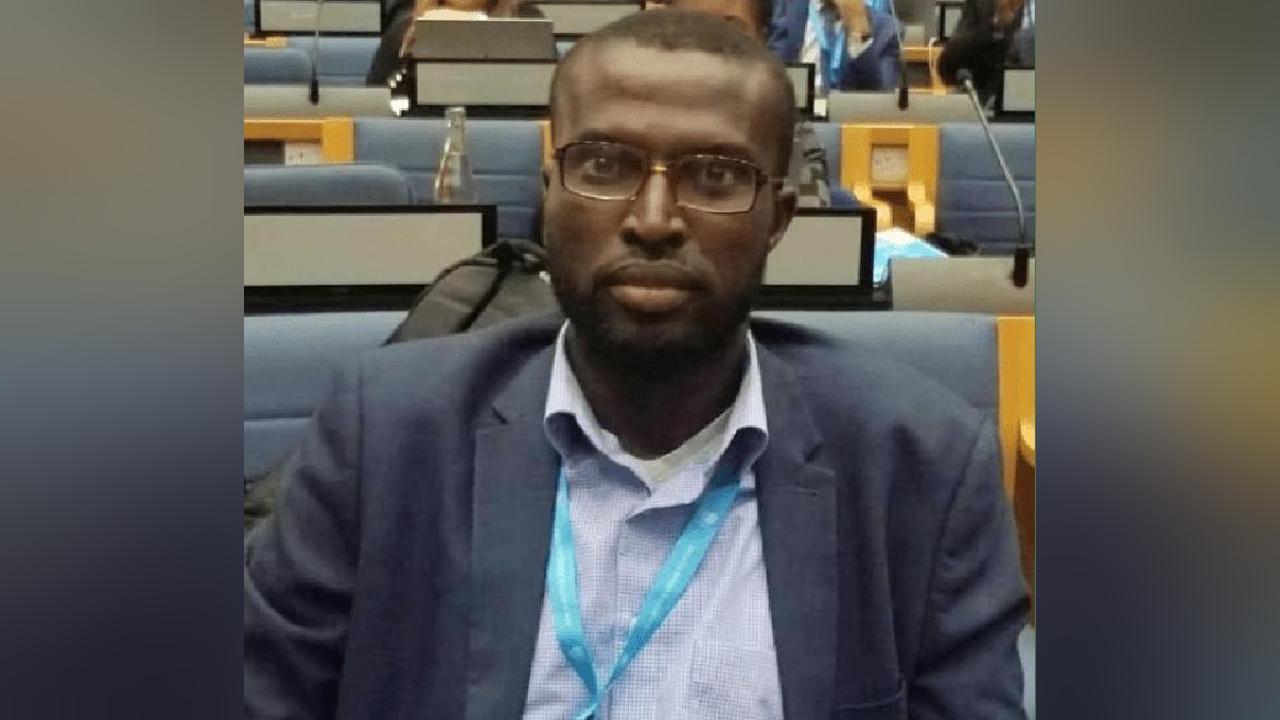By Lt. Col. Samsudeen Sarr Rtd
Africa-Press – Gambia. It is with deep concern and measured alarm that I reflect on the recent incendiary pronouncements of Brikama Area Council Chairman, Mr Yankuba Darboe, statements that have stirred unease among legal scholars, civil society advocates, and political observers alike.
At a recent United Democratic Party (UDP) political rally in Farato, Mr Darboe, an otherwise learned lawyer and senior regional government official, shockingly urged party militants to forcibly install the UDP presidential candidate, presumably Lawyer Ousainu Darboe, into State House, should the party declare itself victorious in the 2026 elections, regardless of the verdict of the Independent Electoral Commission (IEC). His precise words leave no room for ambiguity:
“If we vote, we should not wait for the IEC. Let’s go to the State House, install our father (UDP leader Lawyer Ousainou Darboe) by force. If soldiers are there, we can snatch them. People’s power is what is going to change this country.”
Such audacious rhetoric, calling for a direct confrontation with the country’s security apparatus and contemptuously dismissing the authority of the IEC, is both reckless and profoundly dangerous. It reveals an alarming contempt for the rule of law and an implicit endorsement of mob justice as a legitimate means of seizing political power.
Mr Darboe’s subsequent attempts to frame his words as mere “political exaggeration” offer no acquittal. As a trained barrister, he is acutely aware of the legal and social consequences of incitement. His refusal to apologise or retract his words betrays either an indifference to national peace or a calculated attempt to inflame partisan sentiment at any cost.
What is even more disquieting is the obvious silence from the UDP leadership, particularly from its standard bearer, Lawyer Ousainu Darboe. One would have reasonably expected the former vice president and veteran statesman to swiftly repudiate his Yanks’ dangerous utterances. That he has not done so leaves room for troubling interpretations, whether of tacit approval or strategic indulgence of extremism within party ranks.
Alas, this is not the first time Mr Yankuba Darboe has displayed an appalling disregard for national unity. Only a few weeks prior, at another event, he unabashedly played the ethnic card:
“They want to overthrow our party leader overnight with their illogical Mandinkaphobia! It’s not happening! If you hate Mandinka leadership of UDP, form your own party and get your non-Mandinka leader… That’s democracy!”
Initially, I was inclined to dismiss this statement as political fiction conjured by rivals. But the Chairman has neither denied nor clarified it. Coming from a figure occupying the highest local government office in the West Coast Region, arguably the most populous in the country, such tribalistic outbursts are nothing short of perilous. They not only deepen ethnic fault lines but also erode the foundational values of our democratic experiment.
The UDP, over the years, has made concerted efforts to shed the perception of ethnic exclusivity. Lawyer Ousainou Darboe himself has frequently denied any Mandinka-centric political ideology, citing his multi-ethnic familial ties and inclusive political vision. But when a senior party official unapologetically invokes tribal loyalty as a political weapon, and does so unchallenged by the party’s upper echelons, such denials ring hollow.
Let me state that ethnic nationalism has no place in The Gambia’s political discourse. Our history has shown that even the mere flirtation with tribal politics carries the seeds of social disintegration. No amount of electoral desperation should justify it.
Equally concerning is the UDP’s persistent claim, advanced by both its leaders and loyalists, that the 2021 presidential election was rigged in President Barrow’s favour. The not-so-subtle implication is that unless the UDP wins in 2026, the results must again be fraudulent. Such conspiratorial fatalism paves the way for post-electoral instability and undermines public trust in our electoral institutions.
In stark contrast, President Adama Barrow, speaking recently at a rally in Janjanburay, projected optimism about his reelection prospects, declaring his intent to win with 75% of the vote, a significant leap from his 53% margin in 2021. Whether one agrees with his prediction or not, his language reaffirmed faith in the democratic process, not its rejection.
Chairman Yankuba Darboe’s history offers additional cause for concern. It is worth recalling his prominent role in the “Three Years Jotna” agitation, a movement that, in December 2019, descended into chaos as demonstrators demanded that President Barrow step down before completing his constitutionally sanctioned five-year mandate. The protest, which paralysed large parts of the Greater Banjul Area, ended in violence, injury, and disruption. Mr Darboe and several fellow agitators were arrested, tried, and later pardoned. His post-release conduct, however, has shown neither contrition nor maturity, only greater audacity.
Today, as Chairman of the Brikama Area Council, Mr Darboe commands a powerful platform. But instead of championing good governance and national unity, he has increasingly resorted to incendiary speech that threatens both his party’s integrity and the country’s social cohesion.
As the 2026 elections approach, Gambians must resolutely reject any form of political intimidation, ethnic chauvinism, or rhetoric that sows discord. We must demand higher standards from those who claim to lead us. Accountability is not a partisan virtue, it is a national imperative.
To those calling for Mr Darboe’s arrest, I counsel restraint. The better antidote to such recklessness is collective vigilance, civic education, and political maturity. But let it be clear that freedom of speech does not equate to a license for sedition.
In these delicate times, Gambia does not need demagogues. We need statesmen, leaders who speak to our common aspirations, not our primordial divisions. Let us not betray the democratic foundations we have painstakingly built since 2017. Let us instead safeguard them with courage, dignity, and an unflinching commitment to peace.
For More News And Analysis About Gambia Follow Africa-Press






